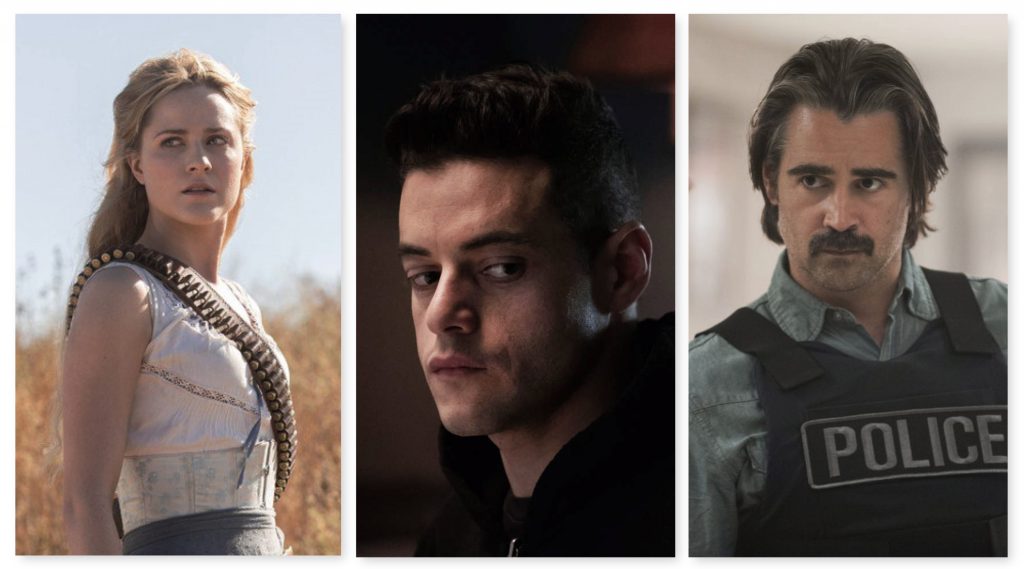Good shows like Westworld go wrong all the time. Often, they go wrong pretty early, just after a great first season.
It happened with True Detective, then with Mr. Robot, and this year, it happened with Westworld.
What’s common between these series is that they are all auteur-driven productions. True Detective’s showrunner, Nick Pizzolatto, was rushed to produce Season 2 after the first season became a success. Although Westworld took a year off for the second season, the plots became a lot more intricate, as though the showrunners Jonathan and Lisa Nolan were determined to trick the fans and keep them from guessing the twists this time.
Psychedelic Plotlines and Difficult Conversations
Mr. Robot’s sophomore season went too far down the rabbit hole, with many psychedelic episodes that focused on the twisty, winding relationship between Elliot and his alter ego. The plot progressed, but at a snail’s pace, introducing new characters and setting up the show’s redemptive third season.
Part of what makes Westworld’s season two difficult to root for is that it is, in a sense, following the least interesting plot out of all possibilities.
It was more entertaining to see the guests’ debauchery and amorality and how that played off with the hosts. The show’s conversations about the nature of consciousness and data mining and privacy tend to run in circles. Some of the plots, such as the quest in Shogun World, ultimately prove to be long detours. The lack of Anthony Hopkins’ Ford (for most of the season) also didn’t help matters.
Nevertheless, the second season of Westworld does have standout episodes, such as the eighth episode, Kiksuya, which deals with a Native American host, Akecheta, gradually becoming aware of his nature and trying to break out of his cycle. True Detective, on the other hand, was bogged down by an uninteresting plot, bad dialogue and the challenge of measuring up to the brilliance of McConaughey’s Rustin Cohle in the previous season.
Unbalanced Characterization makes for Bad Storytelling
It should be noted that all these shows’ second showings weren’t objectively bad. Westworld suffered because it tried to balance intricate plotting with open-ended bookmarks. Nothing of import happens between the robot uprising and Bernard and Dolores escaping the park. The characters are still ill-defined, and in some cases, become more on-note. Maeve becomes almost entirely defined by her motherly love, while others like William become broken ciphers who, nevertheless, get moments of redemption.
Thus, characterization suffers in the second season. Dolores became a cold extremist revolutionary, invoking shades of Magneto in the process, while Bernard remained mostly confused throughout the season. By the end of the season, almost no compelling characters are left on the human side of the oncoming war. Death means less for the hosts, as key characters were killed off and resurrected by the end.
Westworld tried too hard to remain a smart show, and in the process, it sacrificed relatability and viewability.
Bad Seasons, not Bad Shows
For all its faults, Westworld still remains fun, which is more than could be said for Mr. Robot’s second season. The darker tone, and the absence of fan favorite Tyrell Wellick for most of the season made for a more difficult watch. It’s also slower paced and not as rewarding when watched weekly. Elliot, the protagonist, is also more passive this time around, and that didn’t make for compelling television. True Detective, on the other hand, also had to deal with a miscast Vince Vaughan, a less interesting setting and heavy-handed writing.
What all three shows have in common, though, is that they were, essentially, hoisted by their own petards.
It’s hard to outdo oneself, especially when there’s just so many choices for quality entertainment.
Thankfully, if Mr. Robot’s third season is anything to go by, things can get a lot better.
